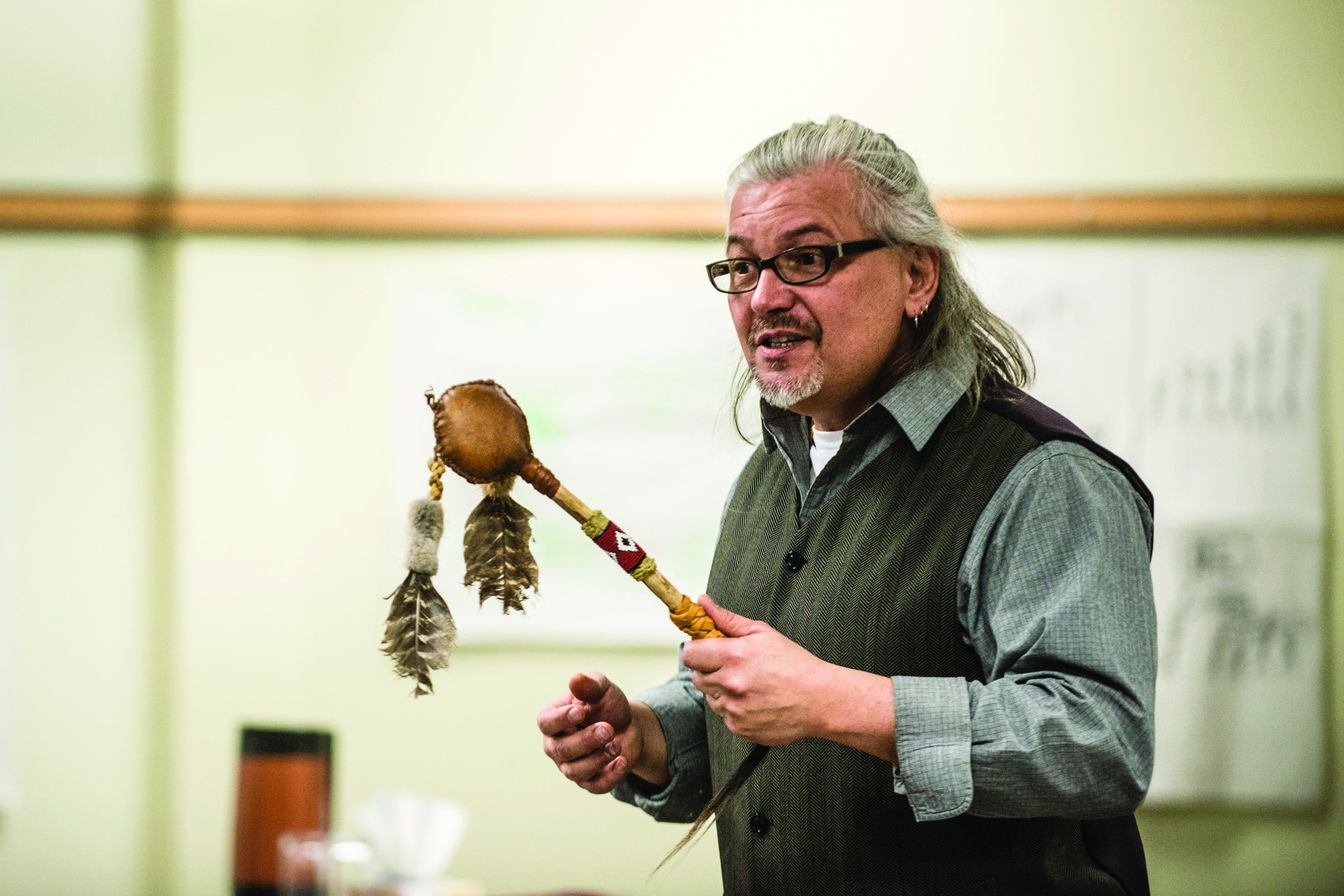Leading the Walk into Two Worlds: A Cultural Approach to Negotiations

Indigenous leaders walk in two worlds. They must be responsive to their people and to the needs of their nation. And they must also represent their nation to governments, corporations, and populations in the rest of the world. Today's Indigenous leaders are negotiating lands claims, tri-partie agreements, and lease terms with governments and corporations. Possibly the most difficult question that they face is, “What is essential in the maintenance of our Aboriginality and what change is necessary to improve our position in relation to the general public?”
There is an old saying; “You can’t teach an old dog new tricks.” This is wrong. Research indicates that we learn throughout our lives. We adapt to new situations and adjust with new information. Many Indigenous trickster stories which are thousands of years old teach the same thing. By using our stories in combination with the teachings from non-Indigenous sources, Indigenous leaders are showing themselves to be a significant force in dealing with business and government in Canada. This is critical to negotiation.
By learning the skills that are available through programs and books, Indigenous people and leaders are gaining the expertise to negotiate in non-Indigenous arenas. Aboriginals already have the skills to negotiate in the Aboriginal world (though these too can be improved). We receive this know-how in our Indigenous stories and teachings and in being Aboriginal. It is important for many Aboriginal peoples to gain this foothold in the non-Aboriginal world while maintaining their position and ties to traditional ways of being.
Negotiation is about relationship building. Relationships, in the Indigenous context, are about long-term commitment. By this I do not mean five-, 10-, or 25-year commitments. Indigenous negotiation is about what I call “reciprocal expectation.” Simply, this is an I-do-for-you therefore you-do-for-me approach, which is a long-term relationship.
This model of relating to others in your circle or network demands an acceptance of an ongoing relationship. Once someone has been accepted by a community and vice versa, there are rights and obligations owed to and from the person and the community. The same should be true when a corporation or additional government comes to Indigenous lands. They need to build good relations.
Negotiation is about balance. It is getting what you need from someone while giving what they need from you. In order to maintain this give-and-take, each side must be taken care of by the other and given respect and full consideration. Done properly this relationship should be able to maintain itself forever. This is the Indigenous way of looking at negotiation. In modern business, one of the major conditions of any negotiation is the termination date. I believe a termination date is foreign to Indigenous thinking. Balancing these two ideas is what Indigenous leaders must do.
A simple rule in any negotiation is to be well prepared and unified as a team so that you know what you want to say. This frees you to listen to the other side and allows you to react to the other party’s concerns (write them down). In turn, this allows you to reiterate the other side’s position, incorporate your own, and create a solution that addresses everyone’s needs. This is the balance in negotiations.
Effective negotiation provides solutions. Negotiations should not be a platform for stating grievances without resolution. It is about listening to the other side and hearing what they need. It is about telling what you need.
It is a respectful conversation toward understanding each other’s interests and seeing them as a whole. It is about searching for solutions that will address the needs of both sides and finding solutions that ensure an ongoing relationship. Any solution put forward must be something that takes into account each party's interests and is something with which everyone can live. Indigenous leaders must negotiate daily. They do it with their children, their employees, their communities, and with the world.
Don McIntyre is an Ojibway of the Temiskaming First Nation, a lawyer, teacher, lecturer, artist, and faculty member with Indigenous leadership programs at Banff Centre for Arts and Creativity. He practices in the areas of Aboriginal law and governance, small business for Aboriginals, and tries to incorporate traditional knowledge and teaching into his practice.